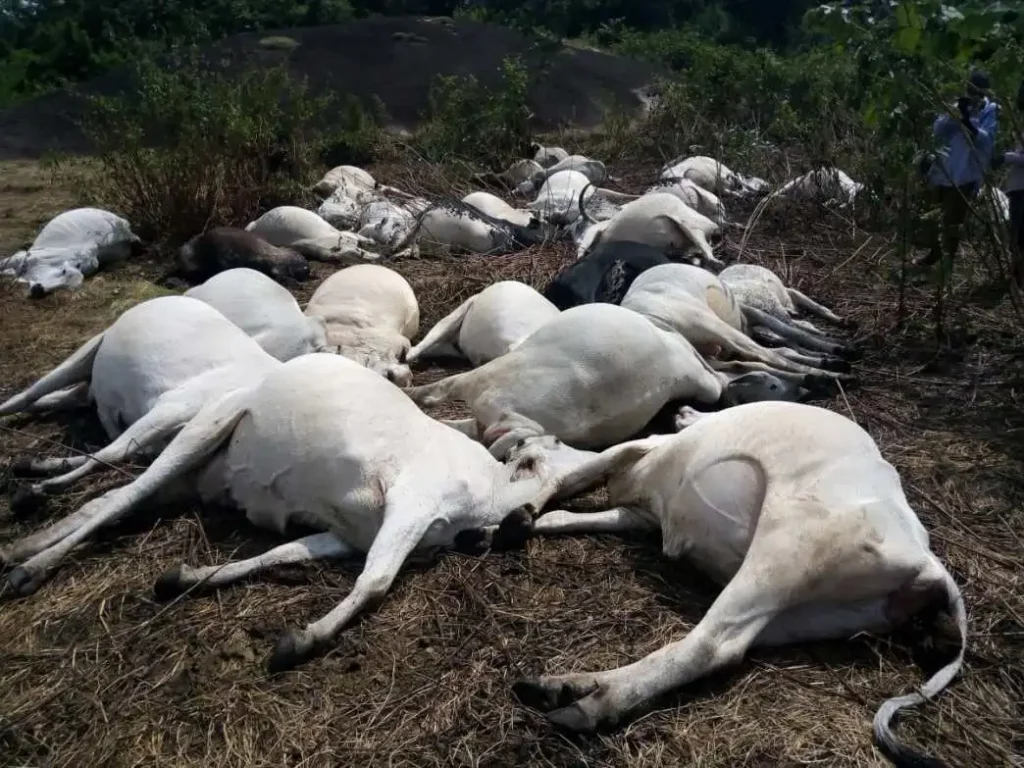The Federal Government has confirmed the first case of Anthrax in Nigeria after disclosing that the disease was detected in a farm in Niger State. The Federal Ministry of Agriculture and Rural Development said that it “is deeply concerned to announce the confirmation of an anthrax case in Niger State, Nigeria. On 14th of July, 2023 the Office of the Chief Veterinary Officer of Nigeria was notified of animals manifesting symptoms of a suspected case of anthrax in a farm in Suleja, Niger State. The case was in a multi-specie animal farm comprising of cattle, sheep and goats located at Gajiri, along Abuja-Kaduna expressway Suleja LGA, Niger State, where some of the animals had symptoms including oozing of blood from their body openings – anus, nose, eyes and ears.
“A Rapid Response team comprising of federal and state One Health Professional Team visited the farm to conduct preliminary investigations and collected samples from the sick animals. Subsequent laboratory tests by the National Veterinary Research Institute laboratory confirmed the diagnosis, marking the first recorded case of anthrax in Nigeria in recent years and after the report of an outbreak of anthrax in Northern Ghana a few weeks ago”, the statement added and that all the animals affected had died. The Ministry had, a few weeks ago, communicated the risk of incursion of Anthrax into the country, following confirmed outbreaks in Ghana and other countries in West Africa. The Federal Government had said it had, through the ministry and in collaboration with the Niger State government, taken proactive measures to timely control and contain the disease.
This was carried out through interventions such as the quarantine of affected farm, deployment of 50,000 doses of anthrax vaccines for ring vaccination of susceptible animals’ species around the infected farm, educating farm workers using a one-health approach on the symptoms, preventive measures and what to do when they notice any sign of the disease, the finalisation of the plan for state-wide vaccination of susceptible animals against anthrax, and the intensification of passive surveillance activities in livestock farms, markets and abattoirs and others are heightening targeted public awareness campaigns on anthrax. In addition, livestock owners are to remain vigilant and promptly report any suspicion of illness or deaths on their farms, avoid contact with sick or dead animals and their products and avoid slaughtering sick animals as slaughtering of sick animals can expose people to anthrax spores, and practice suitable biosecurity measures, among others.



